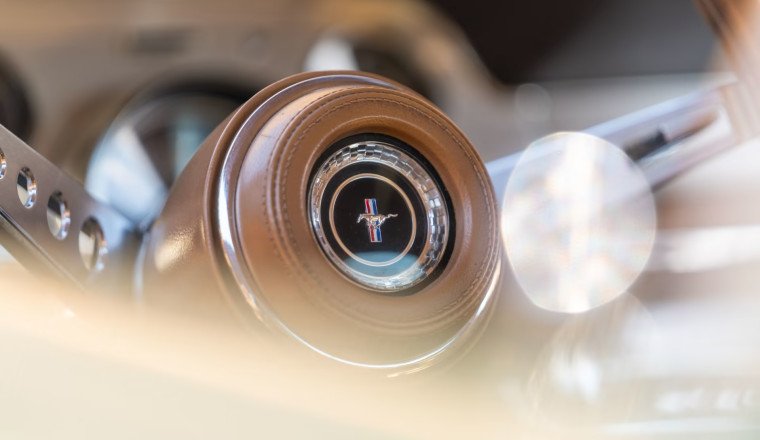
Oh, great. Another AI article.
We have to talk about it, though, because it’s everywhere. Take a look in almost any corporate stock prospectus, investor outreach, or PR blurb. It’s a corporate must-have, and at this point it seems like everyone is touting their AI chops in ads and on their socials. I’m not sure when my local oil change shop will jump on the AI bandwagon, but I’ve convinced myself that at some point they will. It’s all over the news, too, and not always for flattering reasons—lawyers submitting briefs with made up cases, a newspaper that posted books for summer reading that included a few that do not exist, a government report that cited AI-fabricated studies. And don’t fret, there will be more screw-ups, lots more. But this is a car website, so how does any of this affect our hobby?
Let’s get one thing straight—I’m not an AI hater who’s stubbornly against new technology, nor am I a total AI hater. I see promising possibilities as well as some of the downsides, and it is likely going to affect my field of automotive valuation and appraisal.
Like many of you, I don’t really need to see an AI-generated image of how an old Stanley steam car would look if they built it in 2025, or any of the other “art” you can generate in under five minutes (four minutes, technically, for the Stanley). But on the positive side, there’s potential for AI-assisted medical breakthroughs that will save lives. And like almost any major innovation, AI will likely be one of those game-changers that will, like it or not, make life better for some and worse for others. It will both take and create jobs, and many of the jobs taken will be so-called white-collar ones, those skilled professions where staff works in an office and not a factory. My job is one of those white-collar jobs.
All day, I focus on the valuation of mostly specialty, collector, special interest and antique cars, the whole gamut. I’m an automotive appraiser, and the Publisher of the Hagerty Price Guide. There’s a lot of data involved in valuation as well as the car market in general, and AI thrives on data. In my opinion, though, today’s AI often proves the old adage that “even though you can do it doesn’t mean you should.”
To be fair, I have seen big data-backed AI models used successfully for the valuation of late model cars and trucks, the sort of “every day” vehicles most of us use to get to and from work, run errands, take the kids to practice, run to the doctor or vet, etc. I see these AI models as worthwhile for putting a value on a something like a 2017 Chevy Suburban or a 2022 Kia Soul. Naturally, one might think that AI could be useful in valuing old cars, too. But I also feel that they should not—and cannot—be used to place a value on a 1964 Lotus or a 1967 Ford Mustang. Why? Well, for a lot of reasons, a few of which I’ll list here.
The chances are that the 2022 Kia Soul mentioned above has a pretty simple history. 39,000 miles. One, two, maybe three owners. A small (and now repaired) accident in 2023. Owned by a non-smoker. Three oil changes, regular service. You get the idea. All of those details, (excepting the non-smoker) are one hopes show up in the CARFAX report, which something we can deem, for purposes of this article, a reliable third-party source. And they’re straightforward, recorded data points that an AI model could instantly analyze and weigh against other Kia Souls to come up with a reasonably accurate market value
If we are talking about valuing older, classic and collectible cars and trucks, that’s a completely different story and I have concerns, lots of them.
Back to our 1967 Mustang. The odometer shows 22,500 miles, but is that even helpful? Without an independent, third party source (such as regular, dated and often quite aged repair records or inspection receipts), how can you actually tell? Has the odometer been around once? Or twice? Or three times? Keep in mind that there were no existing federal laws against rolling back an odometer in the first few years of this Mustang’s life. How about a history of accidents? Is there rust that was repaired or is it still present? Again, there might be tell-tale signs, but in the end it’s anybody’s guess.
Was the car repaired or restored? By whom? When? How extensive was the work? How good was the work? Were original parts used? How many owners? In most cases, no one can really know absent original paperwork, which, over five decades on, very rarely exists.
There is more history to a car as it ages. After a largely undefined number of years, a vehicle can go from grocery-getter to an object of desire. Examples here include numerous formerly entry-level BMW and Mercedes-Benz products, domestic pickups, hot hatches from multiple sources, and more. Those previously “undefined” number of years from simply “used” to “collectible” often vary from make to make and model to model. In some cases it might take years, in other cases a car might now be considered collectible while still in production, or very shortly after production ceases. A car that costs $5000 new in 1960 or 1970 can be worth many multiples of that years later. Or, if it doesn’t have the right options or it has a sketchy history, it might not be worth much at all. Ownership can make a difference in value, too. Exceptional records, glory on a race track, celebrity ownership, or a dozen other hard-to-define factors may or may not give it a value bump, and the size of that bump can vary widely.
I’m not just trying to justify my own job here. What I am saying is there can be many variables that continue to come down to intuition and even the human touch. AI in 2025 is complex and complicated, and will continue to be more so in the future, but the collector car hobby and the market surrounding it operate on human factors like emotion, nostalgia, and taste.
Will AI continue to grow, and replace jobs conducted by actual humans in the near future? Bet on it. Is that a good thing? Not necessarily, or maybe not at all.
Remember, the future always arrives even if we prefer it would wait, and it appears we have entered the fourth industrial revolution. You might want to hone your skills and become really outstanding at something, be it gardening, building, or fixing broken things. AI can’t and won’t be able to do everything. There will still be room for problem solvers, big thinkers and people not afraid to do things too complex, or too simple, or too human for AI to make a difference.















Facebook Conversations